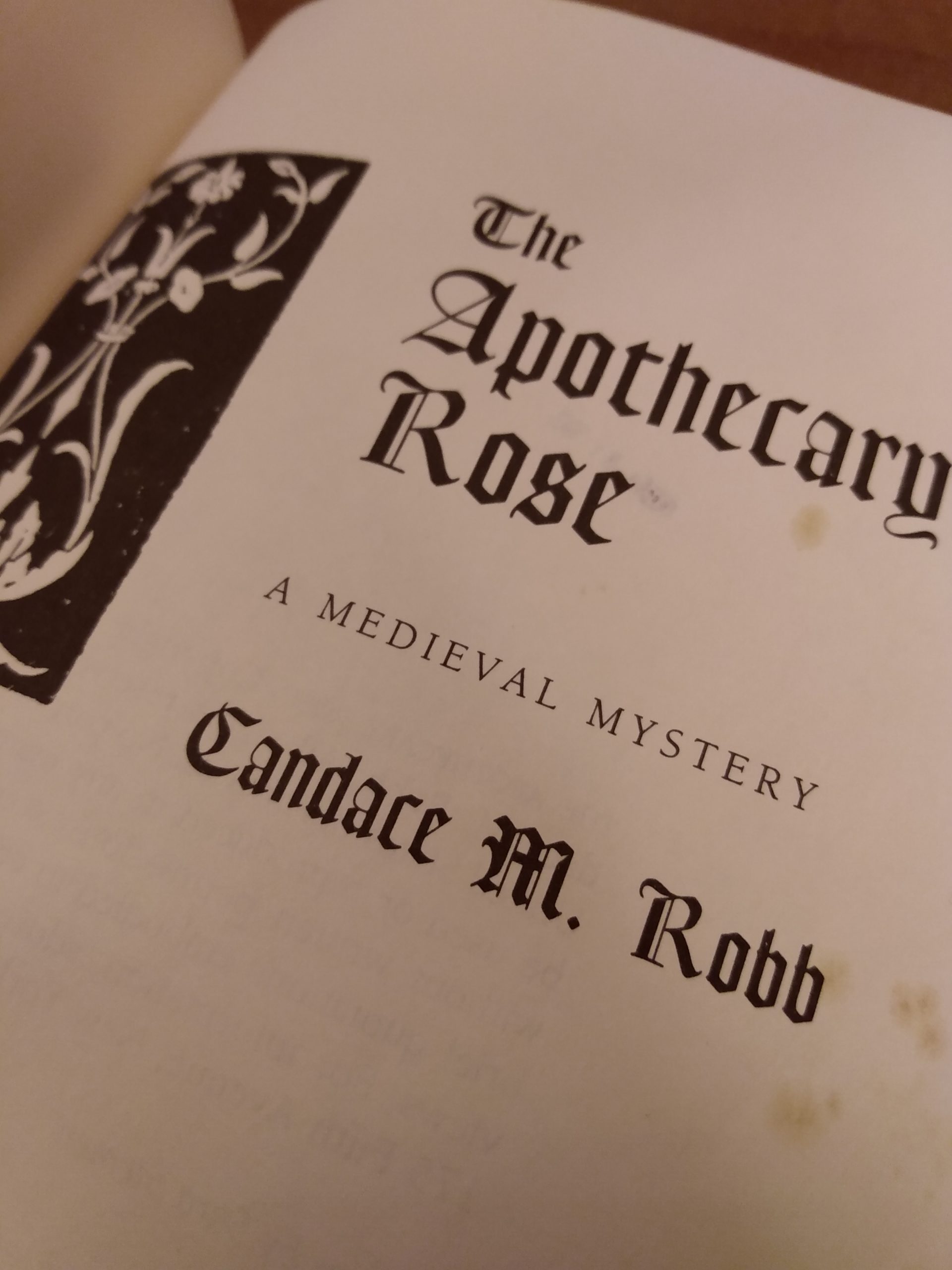I’ve stepped about 500 years back in time from my normal historical mystery eras of Victorian and Regency to the 1300’s in York, England. The Apothecary Rose followed Owen Archer, a one-eyed former-army-captain-turned-spy, assigned to investigate the death of one of the Archbishop’s wards. Initially, I was not excited about beginning this book as I don’t like the medieval period much – it’s dirty, corrupt, and, did I mention, dirty? I realize there are a lot of other socioeconomic and political reasons to hate on medieval times, but the overall dirt, grime, poor living conditions, etc. pretty much do it for me. It just makes me itchy and glad I have a shower when I read about how people didn’t bathe for weeks, lived with rats, etc.
However, grime wasn’t a serious problem in this novel, and, surprisingly, I really want to read the next one. It’s written really well, spoken in today’s terms while using vocabulary and descriptions that immerse the reader into the 1300’s environment and setting. There’s romance, intrigue, deception, and – what I’m looking for, anyways – a satisfying murder mystery. The characters are well thought out; enough information is given about them to believe and understand their motivation, but not too much as to think the author is trying too hard.
Candace Robb has a third-person omniscient writing style, and lets us into each character’s head just enough to form a loose idea of what they’re getting at, then abruptly switches focus. It’s a great tactic that deepened the mystery for me, and it was done really well. Robb creates characters that are quite genuine, which makes the mystery that much more believable and the book that much more enjoyable.
The Apothecary Rose impressed me as it allowed us modern readers to get the tone of the relative lawlessness of the medieval period and the dominance of the church. I am sincerely impressed with Robb’s ability to maintain the atmosphere of the medieval period while avoiding writing completely in a Middle English style. I’ve been to Canterbury Cathedral, Rochester Castle, and Westminster Abbey – I’ve seen the way they spelled, phrased, and notated back then. I am so very glad Robb is gifted enough to write in a modern tone while bringing us comfortably back to the 14th century.
